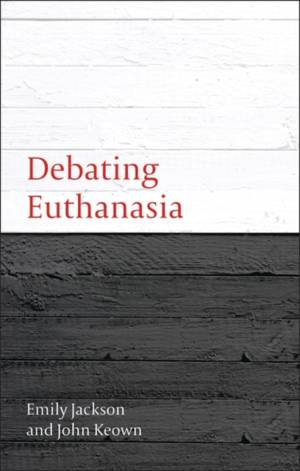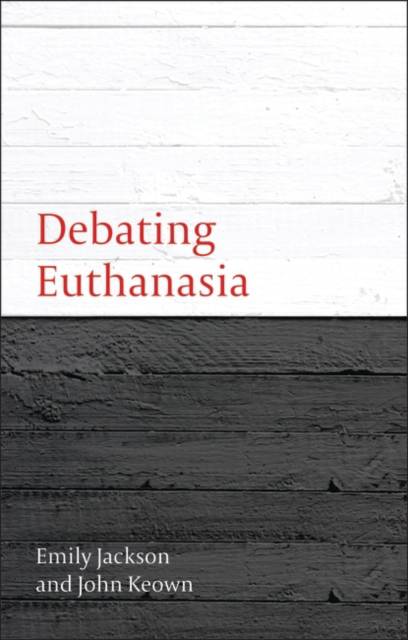
- Afhalen na 1 uur in een winkel met voorraad
- Gratis thuislevering in België vanaf € 30
- Ruim aanbod met 7 miljoen producten
- Afhalen na 1 uur in een winkel met voorraad
- Gratis thuislevering in België vanaf € 30
- Ruim aanbod met 7 miljoen producten
Zoeken
€ 36,45
+ 72 punten
Omschrijving
In this new addition to the Debating Law series, Emily Jackson and John Keown re-examine the legal and ethical parameters of the debate about euthanasia and assistance-in-death. Emily Jackson argues that we owe it to everyone in society to do all that we can to ensure that terminally-ill patients experience a 'good death.' For a small minority of patients who experience intolerable and unrelievable suffering, this may mean helping them to have an assisted death. In a liberal society, where people's moral views differ, we should not force individuals to experience death in an unbearable manner. This is not an argument in favor of dying. On the contrary, Jackson argues that legalization could extend and enhance the lives of people whose present fear-of-the-dying process causes them overwhelming distress. In contrast, John Keown argues that voluntary euthanasia and physician-assisted suicide are gravely unethical, and he defends their continued prohibition by law. Keown analyzes the main arguments for relaxation of the law - including those which invoke the experience in jurisdictions that permit these practices - and finds them wanting. Relaxing the law, he concludes, would be both wrong in principle and dangerous in practice, not least for the dying, the disabled, and the disadvantaged. Debating Euthanasia will be an excellent resource for provoking classroom discussion and is a useful introduction to the subject. It covers a highly topical subject and will be of interest to a wide readership, including medical lawyers, legal philosophers, and criminal lawyers. The clear and accessible style also makes it suitable for the lay reader who is interested in the debate surrounding euthanasia. (Series: Debating Law - Vol. 3)
Specificaties
Betrokkenen
- Auteur(s):
- Uitgeverij:
Inhoud
- Aantal bladzijden:
- 200
- Taal:
- Engels
- Reeks:
- Reeksnummer:
- nr. 3
Eigenschappen
- Productcode (EAN):
- 9781849461788
- Verschijningsdatum:
- 2/12/2011
- Uitvoering:
- Paperback
- Formaat:
- Trade paperback (VS)
- Afmetingen:
- 137 mm x 216 mm
- Gewicht:
- 317 g

Alleen bij Standaard Boekhandel
+ 72 punten op je klantenkaart van Standaard Boekhandel
Beoordelingen
We publiceren alleen reviews die voldoen aan de voorwaarden voor reviews. Bekijk onze voorwaarden voor reviews.








